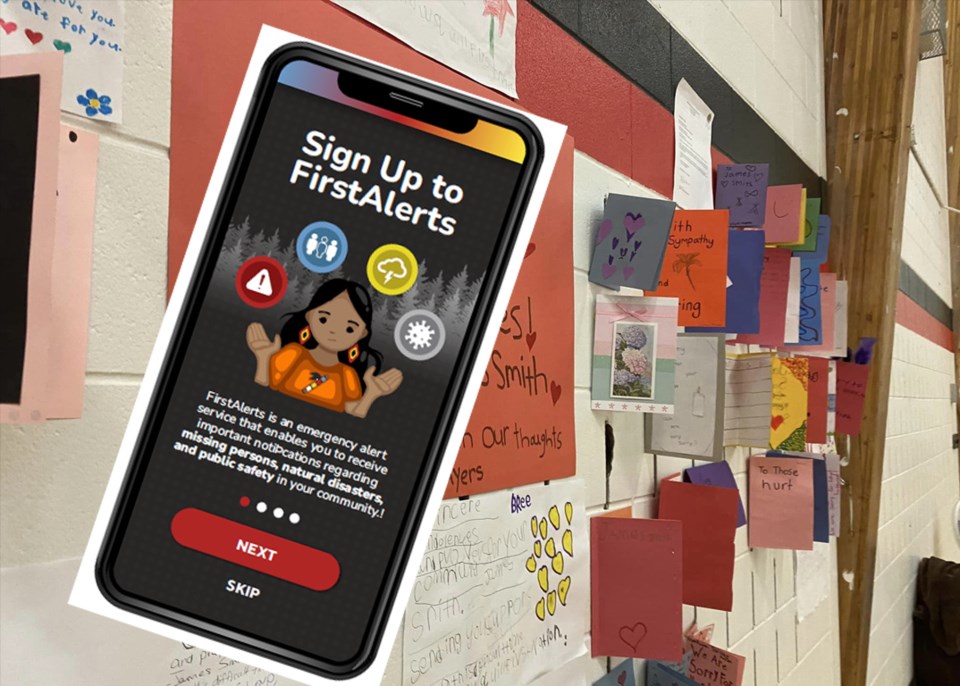JAMES SMITH CREE NATION – Nearly a year and a half after a stabbing massacre at James Smith Cree Nation, Chief Wally Burns announced his community has signed a new partnership that gives First Nations leaders access to a new emergency alert system.
The system is called FirstAlerts. It's a newly launched feature on Talking Stick, an anonymous chat app developed by TryCycle Data Systems in partnership with the Federation of Sovereign Indigenous Nations (FSIN) that provides peer-to-peer Indigenous support in Saskatchewan.
FirstAlerts will empower First Nations leaders to issue emergency alerts through Talking Stick about missing persons, natural disasters, and public safety emergencies.
“This is about putting control back into the hands of our people when we’ve felt underserved by the traditional emergency alert system,” says Chief Burns. “Using FirstAlerts is another way for us to feel safer as a community after we’ve lived through such tragedy.”
In September 2022, 11 people were killed and 17 others were injured during a stabbing spree in James Smith Cree Nation. Earlier this month, a coroner’s inquest into the massacre resulted in 29 recommendations, including eight measures that can be taken to make the community safer.
FirstAlerts allows First Nations community leaders to issue trusted and timely alerts to their members to help ensure their own safety and that of their families and loved ones.
James Smith Cree Nation is the first First Nations community in Saskatchewan that will be able to send community-based safety alerts directly to their members.
TryCycle Data Systems’ CEO John MacBeth is confident more communities will sign on. He says existing emergency alert systems have often missed the mark in serving the unique needs of First Nations communities.
“People are using Facebook to get instructions about their safety, about gunshots being fired, about a missing child,” says MacBeth. “More than half of our employees are Indigenous and living in Saskatchewan — we had to do something.”
Vice-Chief Dutch Lerat from FSIN says First Nations communities and their leaders need to have decision-making power on how emergencies are communicated and what information is shared during an emergency.
“We have witnessed layers of bureaucracy that have cost us critical time during emergencies, or times when a missing person doesn’t meet the criteria to have an alert sent out,” says Chief Lerat. “When it comes to our people and the emergencies that affect us, First Nations have the sovereign right to design and follow emergency alerting protocols of our own creation.”
MacBeth says his Ottawa-based company has spent the last year developing FirstAlerts because they saw the urgency in creating a solution.
“The lack of alert sovereignty from our First Nations communities is simply unacceptable,” he says. “Indigenous communities in Canada experience disproportionate risks and a higher frequency of emergency evacuation. TryCycle is deeply honoured to have played a very small part in closing this gap, a privilege often overlooked by non-Indigenous Canadians."
MacBeth says TryCycle is ready and eager to bring FirstAlerts to many more First Nations communities across the country.
"I have no doubt it will save lives,” says MacBeth. “We believe we have created something here that can truly make a difference, and we would like to see as many communities as possible using Talking Stick and FirstAlerts in the near future.”


